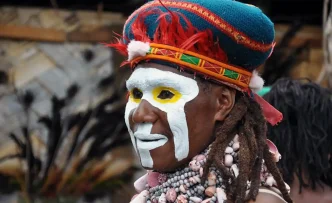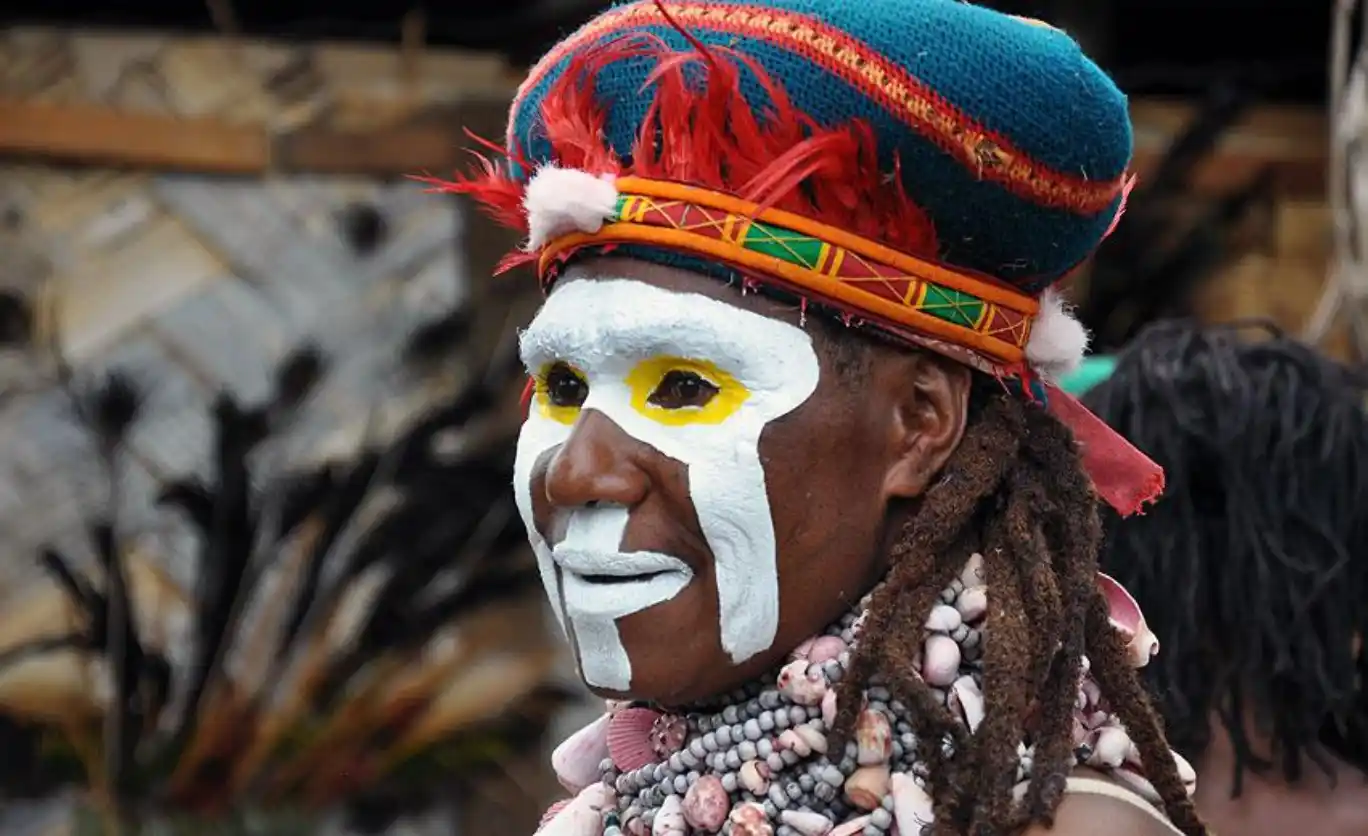Indonesian President Prabowo Subianto has thrown his support behind Papua New Guinea’s (PNG) bid to join the Association of Southeast Asian Nations (ASEAN), arguing that expanding the bloc’s membership would strengthen its global influence amid rising geopolitical tensions. Speaking at the 46th ASEAN Summit in Kuala Lumpur on May 26, 2025, Prabowo described PNG as a “close neighbor” to Indonesia and emphasized the strategic importance of a more robust regional alliance.
“In the current situation of geopolitical uncertainty, the stronger ASEAN is, the more we will be heard in the discourse of the great powers” Prabowo said during a closed plenary session, according to an official statement. “We know now that only those with strength will be respected” he added, underscoring his belief that unity and expanded membership are critical for the bloc’s relevance on the world stage.
PNG’s Bid and Indonesia’s Unique Connection
Papua New Guinea, which shares an 800-kilometer land border with Indonesia, has long been a point of diplomatic engagement for Jakarta. While border issues persist, periodic reviews between the two governments have fostered a “continuing positive trend” in their relations. Cultural ties also play a significant role, with indigenous Papuans enjoying greater ease of movement across the border compared to other residents, reflecting shared heritage and historical connections.
Prabowo’s endorsement of PNG’s potential membership aligns with Indonesia’s broader efforts to deepen ties with its eastern neighbor. Analysts suggest that Jakarta sees strategic value in bringing PNG into the ASEAN fold, not only to enhance regional cohesion but also to bolster stability along its border. If successful, PNG’s inclusion would mark a significant expansion of ASEAN beyond its traditional Southeast Asian boundaries, potentially reshaping the bloc’s geopolitical footprint in the Pacific.
The proposal, however, is still in its early stages. While Prabowo’s remarks signal strong support from Indonesia—one of ASEAN’s largest and most influential members—other member states have yet to publicly weigh in. The process for admitting new members involves consensus among all existing members, a hurdle that could delay or complicate PNG’s bid. For now, the prospect remains speculative, with no official timeline or confirmation of broader support within the bloc.
Timor-Leste’s Imminent Accession
During the same plenary session, Prabowo also welcomed Timor-Leste’s upcoming accession to ASEAN, set to be finalized at the next regional summit in October 2025. Timor-Leste, which has held observer status for years, will become the bloc’s 11th member, a milestone that many see as a testament to ASEAN’s commitment to inclusivity and regional integration.
“With the increasing membership of Timor-Leste and Papua New Guinea, I think this will also enhance ASEAN’s role in the world” Prabowo said, linking the two prospective expansions to a broader vision of a stronger, more assertive ASEAN. Indonesia has been a vocal supporter of Timor-Leste’s membership, reflecting its historical ties to the young nation, which gained independence from Indonesia in 2002 after a tumultuous period of occupation.
Timor-Leste’s inclusion is expected to bring fresh perspectives to ASEAN, particularly on issues of post-conflict recovery and economic development. However, it also raises questions about the bloc’s capacity to integrate smaller, less economically developed members while maintaining its focus on collective priorities such as trade and security.
ASEAN’s Broader Challenges at the Summit
The Kuala Lumpur summit, attended by leaders of the 10 current ASEAN member states—Brunei Darussalam, Cambodia, Indonesia, Laos, Malaysia, Myanmar, the Philippines, Singapore, Thailand, and Vietnam—along with Timor-Leste as an observer, tackled a range of pressing issues. Beyond membership expansion, the agenda included concerns over the potential economic fallout from US President Donald Trump’s proposed “reciprocal tariff” policy, which could disrupt trade flows in a region heavily reliant on exports.
ASEAN leaders also intensified calls for peace in Myanmar, where ongoing conflict between the military junta and opposition factions has destabilized the country and strained regional diplomacy. The summit discussions underscored the bloc’s struggle to balance its principle of non-interference with the urgent need to address humanitarian crises within its borders. While no concrete resolutions were announced, the renewed pressure on Myanmar’s warring parties to engage in dialogue reflects a growing consensus that the crisis cannot be ignored indefinitely.
Prabowo’s contributions to these discussions highlighted Indonesia’s role as a stabilizing force within ASEAN. His emphasis on unity and resilience resonated with many leaders, particularly as the bloc navigates an increasingly complex global landscape marked by US-China rivalry, economic uncertainty, and regional security threats. Indonesia, with its population of over 270 million and strategic location, remains a linchpin of ASEAN’s aspirations to assert itself as a collective voice on the world stage.
Geopolitical Context and ASEAN’s Future
ASEAN, home to over 680 million people, has long sought to position itself as a counterbalance to the influence of major powers in the Asia-Pacific region. The bloc’s economic clout, driven by rapid growth in countries like Indonesia, Vietnam, and the Philippines, has made it a key player in global trade negotiations and supply chains. However, internal divisions—ranging from economic disparities to political differences—have often hampered its ability to act cohesively on contentious issues.
Prabowo’s advocacy for PNG’s membership and Timor-Leste’s accession comes at a time when ASEAN is grappling with its identity and purpose. Expanding the bloc could enhance its demographic and geographic reach, potentially amplifying its influence in international forums. Yet, it also risks diluting consensus, as new members may bring divergent priorities or require significant support to align with ASEAN’s existing frameworks.
Moreover, the geopolitical uncertainty Prabowo referenced is not abstract. The South China Sea remains a flashpoint, with overlapping territorial claims involving several ASEAN members and China. Meanwhile, the US and its allies are intensifying efforts to counter Beijing’s influence in the region, often putting ASEAN in a delicate balancing act between the two superpowers. A stronger, more unified bloc could, as Prabowo suggested, command greater respect in these high-stakes negotiations—but achieving that unity remains a formidable challenge.
Indonesia’s Leadership Role
As one of ASEAN’s founding members, Indonesia has historically played a leading role in shaping the bloc’s direction. Prabowo’s active engagement at the Kuala Lumpur summit—whether on membership expansion, economic concerns, or the Myanmar crisis—signals his administration’s intent to maintain that leadership. His framing of ASEAN’s strength as a prerequisite for global respect also reflects a broader shift in Indonesia’s foreign policy under his presidency, which appears more assertive and regionally focused than in previous years.
Domestically, Prabowo’s support for PNG and Timor-Leste is likely to resonate with Indonesians, particularly in border regions where cultural and economic ties with these neighbors are tangible. However, it also raises questions about how Jakarta will manage potential challenges, such as border security with PNG or economic disparities with Timor-Leste, as these relationships evolve within an ASEAN context.
Looking Ahead
As the ASEAN Summit concluded on May 27, 2025, the path forward for PNG’s membership bid remains uncertain, pending broader consensus among member states. Timor-Leste’s accession, meanwhile, appears on track for October, marking a historic expansion of the bloc. For now, Prabowo’s vision of a stronger, more inclusive ASEAN offers a glimpse of the region’s potential—but turning that vision into reality will require sustained diplomatic effort and compromise.
In Kuala Lumpur, the message from Indonesia was clear: a united ASEAN is not just a regional necessity but a global imperative. Whether the bloc can rise to that challenge in an era of unprecedented uncertainty is a question that will linger long after the summit’s close.















